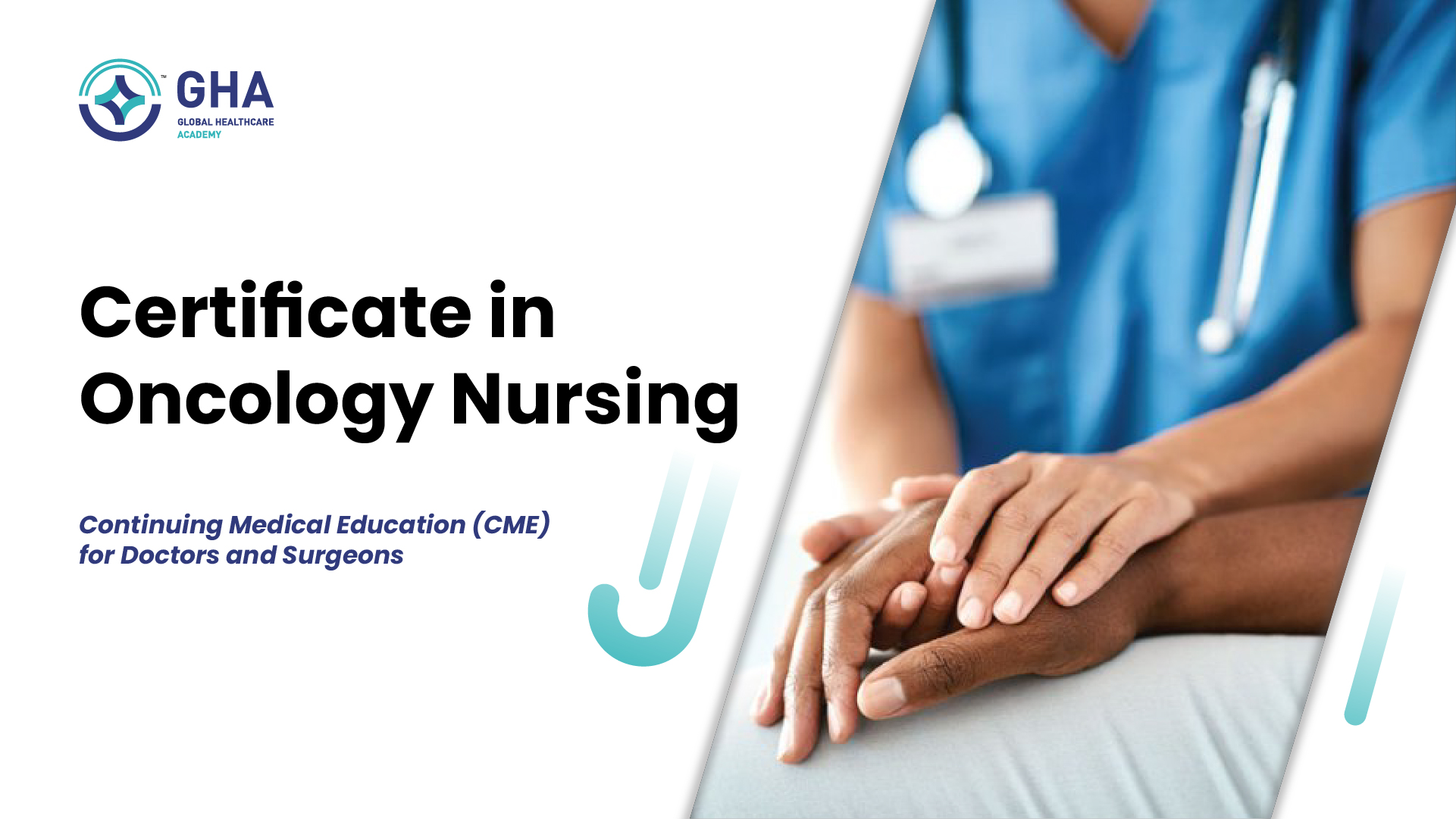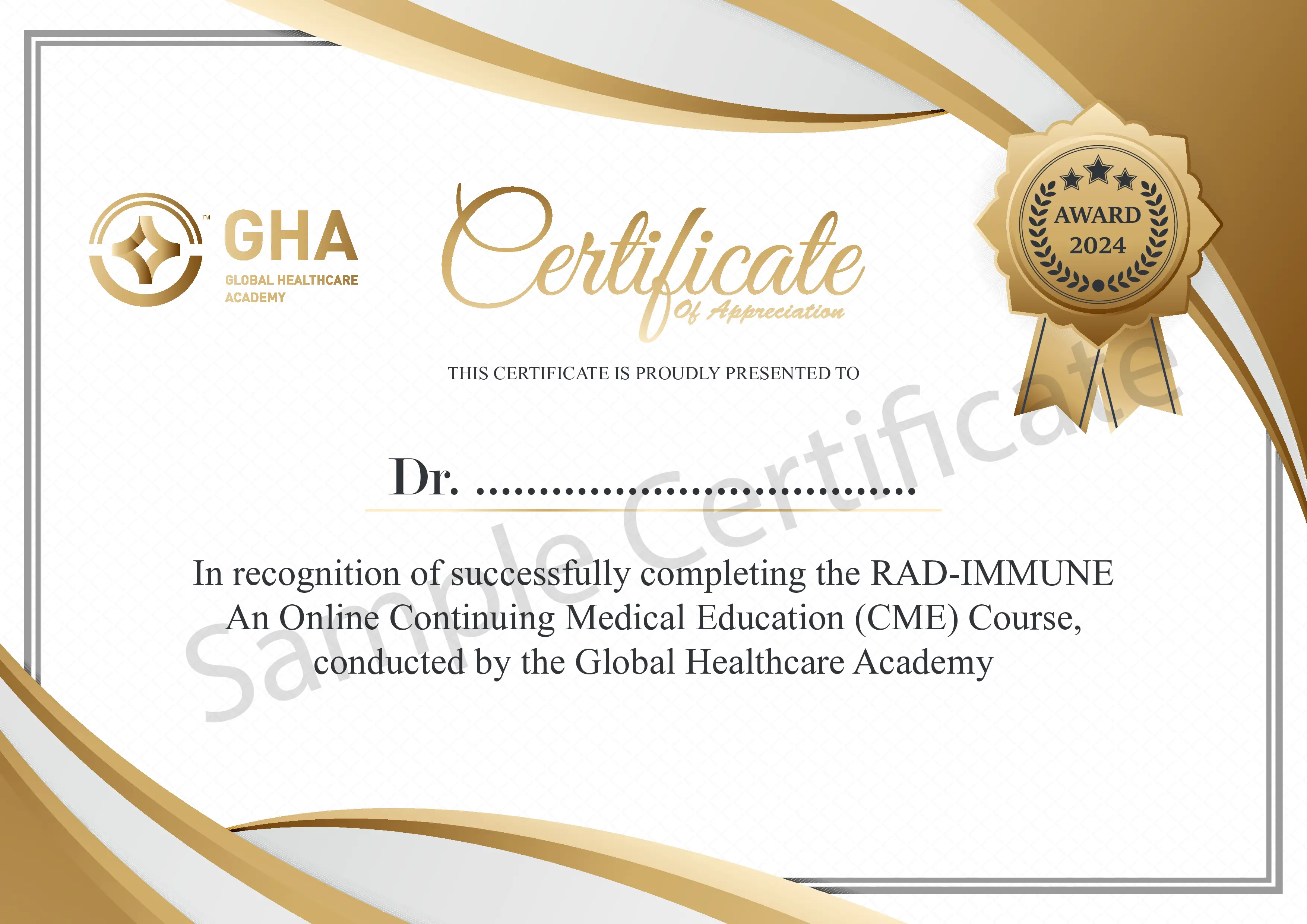Certificate in Oncology Nursing
Step into the frontline of cancer care with the Certificate in Onco-Nursing, a dynamic immersive program to transform passionate nurses into oncology care specialists. This fellowship blends clinical excellence, compassionate care, and knowledge. Covering cancer biology, treatment strategies, symptom management, emotional support, ethical dilemmas, and oncology nutrition, it equips you to thrive in complex oncology settings.
Offline
6 Month
GNM, B.Sc. Nursing graduates, M.Sc. Nursing graduates
About courses
- Explain core concepts of oncology nursing and multidisciplinary cancer care.
- Provide evidence-based care across chemotherapy, radiation, and targeted therapy settings.
- Manage pain, side effects, and end-of-life symptoms with competence and compassion.
- Communicate sensitively with patients and families in emotionally challenging situations.
- Apply safety protocols, legal guidelines, and nutrition planning in daily oncology practice.
- In-person Interactive Lectures
- Clinical Reading and Reference Materials
- Onsite Case-Based Learning
- Bedside Clinical Observations
- Hands-on Practical Training
- Clinical Assignments and Presentations
- Assessment through Clinical Viva and Written Tests
- Understand the fundamentals of oncology nursing, including roles, responsibilities, and cancer pathophysiology.
- Explore cancer treatment modalities and related nursing care strategies.
- Learn effective symptom management and principles of palliative care.
- Enhance communication skills for psychosocial support and end-of-life discussions.
- Develop awareness of ethical, legal, safety, and nutritional considerations in oncology care.
Course Curriculum
01 Introduction to Oncology Nursing
CLINICAL EXPERIENCE ON ABSCOPAL AND RADSCOPAL EFFECTS
Overview and Evolution
Key Responsibilities and Multidisciplinary Collaboration
Understanding Cancer
Types, Risk Factors, and Pathophysiology
02 Surgical Oncology Nursing
Mitochondrial DNA and its Impact on Immuno-Radio Therapy
Pre-operative and Post-operative Nursing Care
Surgical Site Infection Control
Pain and Wound Management
Handling Surgical Drains and Devices
Case Studies: Surgical Oncology Care
03 Medical Oncology Nursing
Chemotherapy: Drugs, Administration, and Safety
Targeted Therapy and Immunotherapy Nursing Care
Chemotherapy Side Effect Management
Handling Hazardous Drugs and PPE Protocols
Case Studies: Chemotherapy and Medical Oncology Care
04 Radiation Oncology Nursing
Principles of Radiation Therapy
Radiation Side Effect Management
Skin Care During Radiation Therapy
Radiation Safety Protocols for Patients and Staff
Case Studies: Radiation Oncology Nursing Care
05 Symptom Management and Palliative Care
Pain, Nausea, Fatigue, and Malnutrition
Ethical Considerations in Terminal Care
Palliative Care and End-of-Life Support
06 Oncology Nursing Assessments and Monitoring
Patient Assessment Tools
Comprehensive and Psychosocial Assessment
Patient Education and Advocacy
Cancer Prevention and Education Strategies
07 Infection Control and Safety in Oncology
Infection Prevention and Risk Assessment
Sterile Techniques and Use of PPE
Chemotherapy Handling and Hazard Prevention
08 Oncology Nutrition
Role of Nutrition in Cancer Care
Managing Malnutrition and Nutrition Support
Dietary Guidelines During Chemotherapy and Radiation
Palliative Nutrition and Comfort Feeding
09 Ethical, Legal, and Professional Issues in Oncology Nursing
Ethical Dilemmas and Informed Consent
Patient Autonomy and Decision Making
Legal Documentation and Advanced Directives
10 Psychosocial Aspects and Communication in Cancer Care
Psychological Impact of Cancer
Coping Strategies and Mental Health Support
Effective Communication and Delivering Difficult News
FREQUENTLY ASKED QUESTIONS
01 How is this course different from the usual oncology exposure in hospital wards?
While many nurses encounter cancer patients in general wards or ICUs, this course provides a structured, specialized learning experience that goes beyond routine care. It equips you with a deeper understanding of oncology-specific protocols, treatment modalities like chemotherapy and radiation, symptom management, and the ethical and emotional complexities unique to cancer care. The hands-on learning and dedicated modules ensure you're not just participating in care but leading it with knowledge and compassion.
02 Will this certificate enhance my career prospects in oncology departments or cancer hospitals?
Yes, this certificate is designed to build your profile for dedicated roles in oncology nursing. Whether you aim to work in a chemotherapy day-care unit, radiation oncology ward, or palliative care service, the course provides you with the clinical knowledge, patient-handling skills, and safety competencies that employers in cancer centers actively seek. It can also support internal promotions or transitions into specialist units within multispecialty hospitals.
03 I plan to work abroad in the future. Is this course beneficial for international opportunities?
Absolutely. The curriculum is aligned with global standards of oncology nursing practice, incorporating elements of evidence-based care, safe drug handling, radiation safety, and ethical communication. These competencies are recognized across international healthcare systems, especially in countries where cancer care is protocol-driven and nurse-led interventions are highly valued.
04 What kind of clinical exposure and bedside training will I receive?
Throughout the course, you’ll be placed in real oncology settings such as surgical oncology units, chemotherapy administration areas, and radiation therapy departments. You’ll observe and assist in the management of side effects, end-of-life care, patient education, and ethical decision-making. These clinical postings allow you to directly apply theoretical knowledge to real patient scenarios under the guidance of experienced mentors.
05 I’ve attended a short hospital workshop on oncology before. Is this course still relevant for me?
Yes, very much so. Short workshops usually provide introductory knowledge or protocol updates. In contrast, this six-month program offers comprehensive, case-based learning, hands-on training, and consistent mentorship. You’ll be assessed on clinical decision-making, safety practices, and patient-centered communication, making this a much deeper and skill-oriented experience.
06 I have no previous oncology experience. Can I still join the course?
Certainly. This course is designed to be beginner-friendly while still maintaining depth. If you’re a registered nurse with general ward or critical care experience, this program will help you build a strong foundation in oncology nursing. You will gradually learn about cancer biology, treatment pathways, and nursing care strategies with ample support from faculty and clinical instructors.
07 How will I be evaluated during the course?
Evaluation is continuous and integrated into the learning process. You’ll undergo written assessments, clinical vivas, case presentations, and practical evaluations during your clinical rotations. The focus is on how effectively you can apply your knowledge and skills in real-world scenarios rather than just memorizing content.
08 Can my hospital sponsor me for this course, or does it need to be self-funded?
Hospitals that prioritize quality cancer care often support professional development programs like this. If you are currently employed, you can check with your administration or nursing superintendent regarding sponsorship options. We can also provide documentation to support sponsorship proposals, and the course’s outcomes can contribute positively to institutional accreditation goals.
09 Will I be trained in handling chemotherapy and radiation therapy safely?
Yes. Safe handling of chemotherapy agents, PPE protocols, spill management, and radiation safety practices are all taught through practical training and case-based simulations. You’ll also learn about targeted therapies and immunotherapy—areas increasingly common in modern oncology settings. These skills are essential for both patient and staff safety in cancer units
10 Does the course cover emotional, ethical, and communication challenges in oncology care?
Yes, a dedicated portion of the curriculum addresses the human side of oncology. You’ll explore how to communicate bad news, support grieving families, and handle ethical dilemmas like end-of-life decisions and patient autonomy. These skills are crucial in helping you deliver care that is not only clinically competent but also emotionally intelligent and ethically grounded.
11 What kind of certificate will I receive upon completion?
At the end of the course, you will be awarded a Certificate in Oncology Nursing, which affirms your specialization and clinical training in the oncology domain. This credential is a valuable addition to your professional portfolio and will be recognized by hospitals, cancer care centers, and educational institutions.
12 Is this equivalent to a diploma course in oncology nursing?
While this is not a full-fledged diploma, it offers focused specialization in oncology nursing within a condensed six-month format. For working professionals who may not be able to commit to year-long programs, this certificate provides a high-impact, skill-enriching alternative that bridges the gap between general nursing and specialized oncology care.


